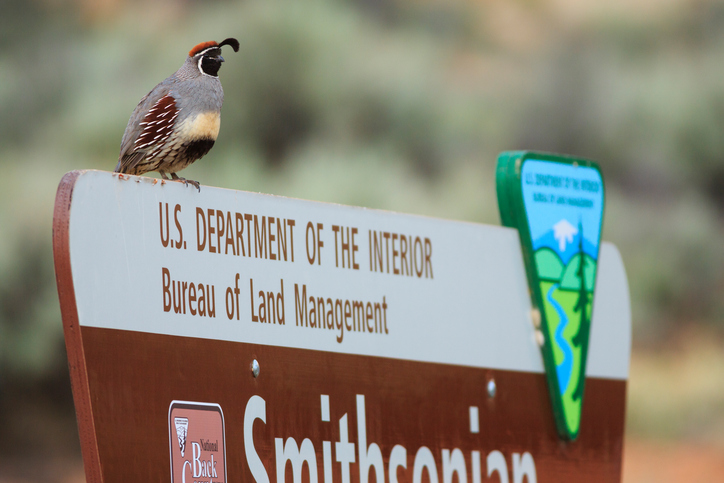This week the U.S. Senate confirmed Ryan Zinke as the Secretary of the Interior. The Department’s responsibilities touch people across the nation: the agencies it encompasses include the National Park Service, the U.S. Fish and Wildlife Service, the U.S. Geological Survey, the Bureau of Land Management, the Bureau of Ocean Energy Management, and many more. It is the Department of the Interior that is responsible for overseeing how the vast majority of America’s public lands and waters are used and managed for the future. This includes everything from issuing leases for private companies to drill and mine on public lands, to protecting wildlife in beloved national parks, to studying the science used to understand these natural wonders.
It’s a vast responsibility—one that I hope Secretary Zinke will undertake with the same eye to the public good as his self-proclaimed conservation model, Teddy Roosevelt.
Roosevelt recognized the value of America’s lands in his day, protecting about 230 million acres of public land. He also signed into law the Antiquities Act, allowing for areas of historic, scientific, and cultural importance to be safeguarded as national monuments.
Thanks to this forward thinking, public lands have become not only a part of the American identity, but also a driving force in our economy. Last year national parks across the country saw record visitation for the third consecutive year. People are increasingly locating where they live and work within easy reach of public lands. The outdoor recreation economy is booming. And outdoor companies are no longer willing to sit on the sidelines when it comes to the future of public lands.
These companies are backing their beliefs with their dollars, releasing films in support of protecting places like the Arctic National Wildlife Refuge, and starting campaigns to protect public lands. The Outdoor Retailer show, in solidarity with its retailers, announced it will be leaving Utah in search of a venue that aligns with its outdoor values. The decision follows an increasingly anti–public lands stance taken by Utah lawmakers, including an effort to undermine the Antiquities Act and significantly shrink or reverse the newly designated Bears Ears National Monument. Other states, including Colorado and New Mexico, are already vying for the show and the estimated $45 billion it brings in.
The position of the outdoor industry is in line with the majority of Americans. A recent poll found that 80 percent of respondents supported keeping existing national monument designations in place.
As a U.S. representative, Secretary Zinke talked a good game on conservation, but when it came down to it he almost always sided with those who would drill, degrade, and dismantle our public lands. During his confirmation hearings, Secretary Zinke noted that a visit to Utah to consider reversing the Bears Ears National Monument would be a priority, as would a trip to Alaska, where pro-drilling Republicans hope to open the sacred coastal plain of the Arctic National Wildlife Refuge to oil rigs. His office is reportedly already working on plans to roll back a coal-leasing moratorium that currently safeguards our public lands and taxpayer resources.
All of these measures will be met with fierce resistance. On Secretary Zinke’s first day, a large crowd rallied in Washington, D.C., to urge him to stand with Bears Ears. The Department of the Interior’s switchboard and social media alike were alight with calls for him to defend our parks and public lands. There is a growing and powerful movement to defend public lands and provide outdoor opportunities for all.
The question is, will Secretary Zinke, like Roosevelt, be a champion of conservation values, or will he ignore the public good to serve the interests of the fossil fuel industry?
We hope in answering that he heeds the words of Roosevelt:
"Of all the questions which can come before this nation, short of the actual preservation of its existence in a great war, there is none which compares in importance with the great central task of leaving this land even a better land for our descendants than it is for us."
After all, in the end, that’s what this is all about.
